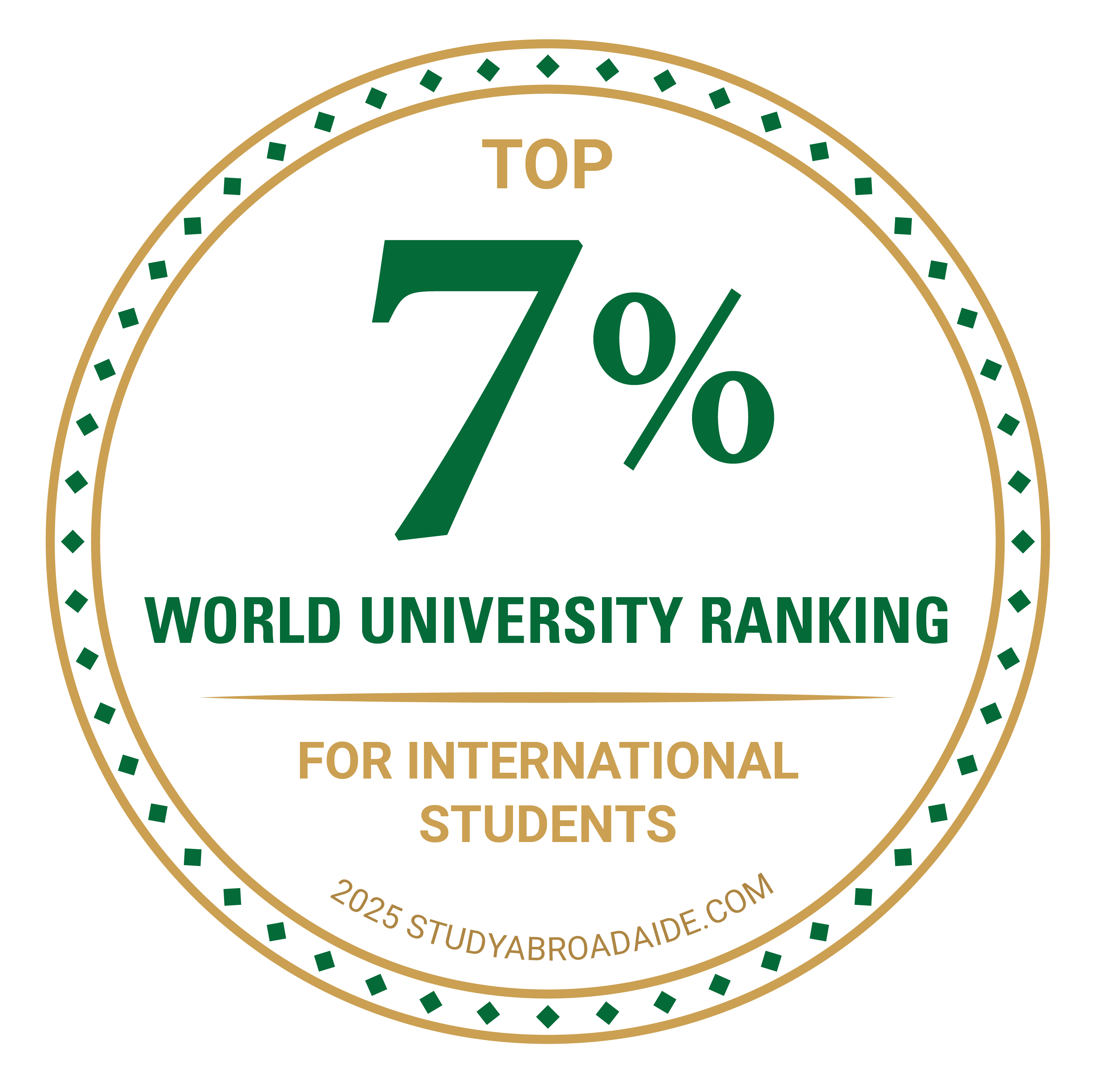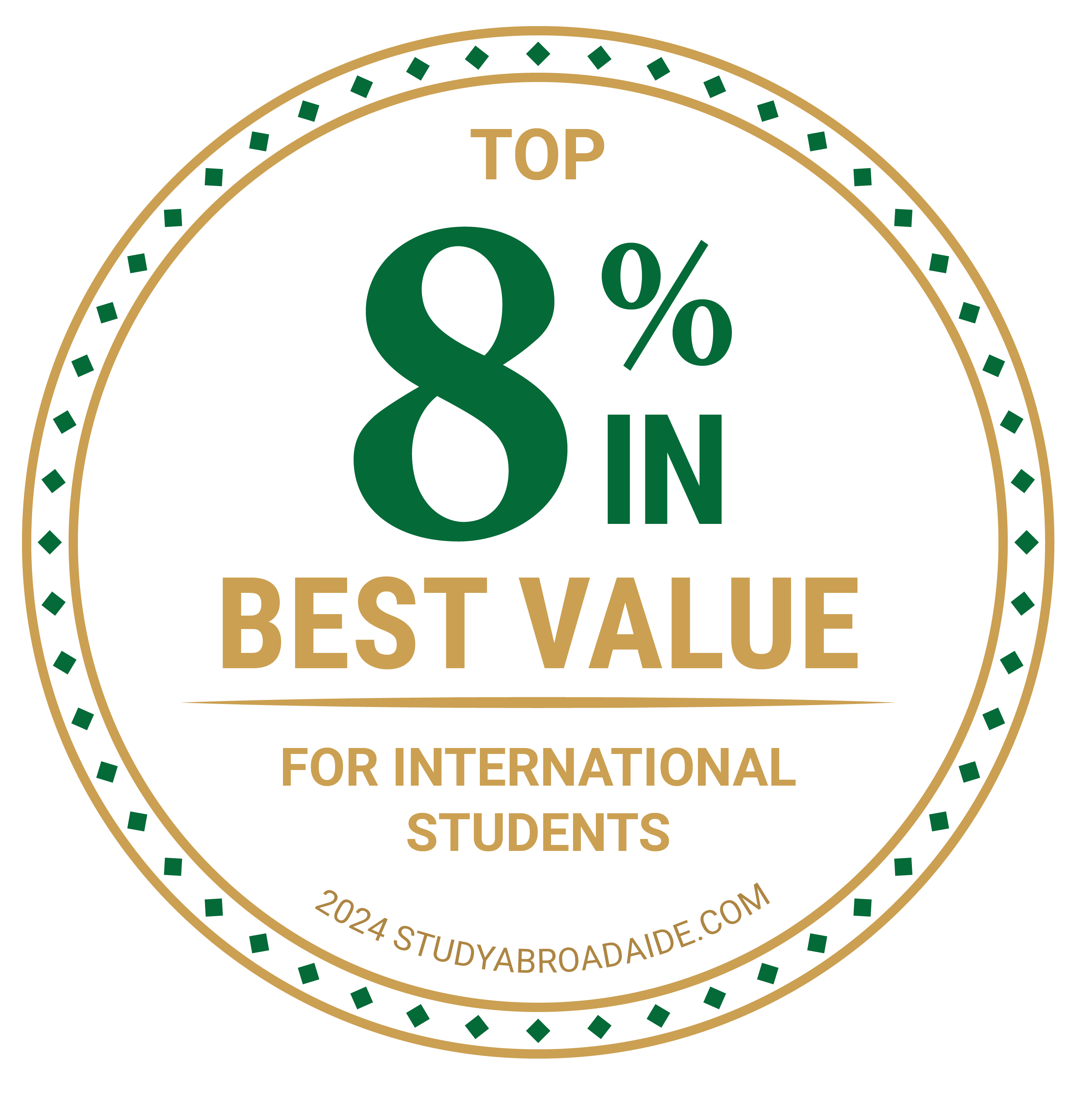Exchange Partners
On this page:
International Academic Agreement Process
All Wright State University academic agreements with external organizations must be approved and signed by the provost. All Wright State University academic agreements that have a tuition reduction must be approved and signed by the chief business officer, the Board of Trustees, and the Ohio Department of Higher Education (O.D.H.E.).
The Director of the University Center for International Education (UCIE) will work closely with Wright State's legal counsel, the Faculty Senate international programs committee, and the Office of the Provost to develop the academic agreements before submitting them for the provost's approval. Contact the Director of UCIE, Michelle Streeter-Ferrari at michelle.streeter@wright.edu to develop, revise, or renew academic agreements.
Wright State University enters into four types of academic agreements with international universities and organizations:
- General Academic Agreements;
- Academic Exchange Agreements;
- Curriculum Articulation Agreements; and
- Academic Agreement Renewals
1. General Academic Agreements: These agreements establish a working, academic relationship between Wright State and the international university or organization. Organizations include government offices (city, state, or national), coalitions of academic institutions, or other formal entities developing an academic partnership with Wright State.
A general, handshake academic agreement includes no financial incentive and follows the general academic agreement template already approved by legal counsel. A general academic agreement:
- Takes an estimated time of 30 days to execute in order to get signatures from Wright State and the partnering institution.
- Requires accurate contact information for the partnering institution.
- Lists the director of the University Center for International Education (U.C.I.E) as the contact for Wright State University.
- Requires signature from the Wright State University provost.
- Does not need Faculty Senate approval because there is no specific curriculum proposed.
2. Academic Exchange Agreements: These agreements are established when an arrangement has been made and approved for student or faculty exchanges with international universities.
An exchange agreement follows the academic exchange template approved by legal counsel. An academic exchange agreement:
- Takes an estimated time of 30 days to execute to get signatures from Wright State University and partnering institution.
- Are monitored by UCIE to assure parity so that Wright State University provides an equal number of exchanges as the partnering institution.
- Requires accurate contact information for the partnering institution.
- Lists the director of UCIE, as the contact for Wright State University.
- Requires signature from the provost.
- Does not need faculty senate approval because there is no specific curriculum proposed.
- Requires that the student must work with UCIE and specific Wright State academic programs to assess course equivalencies of the course before taking an international course.
3. Curriculum Articulation Agreements: These agreements are treated as amendments to a general academic agreement and list specific curriculum equivalencies and responsibilities of Wright State University, the international partner, and the students. A sample agreement is available.
Curriculum refers to individual courses, as well as complete programs. Examples of complete program agreements are:
- The student takes undergraduate courses at Wright State University and applies those courses to a degree at their home international institution. These are sometimes called 3+1 programs because the student usually takes no more than one year of Wright State courses in order to receive an undergraduate degree at their home institution.
- The student takes undergraduate courses at both their home international institution and Wright State University and seeks a degree from WSU. These are sometimes called 2+2 (first two years at home institution and final two years at Wright State) or 1+3 (first year at home institution and final three years at Wright State).
- The student completes an undergraduate degree at either Wright State University or their home institution and applies to a graduate program at Wright State. In a 3+1+1 agreement, a student takes
- three years of undergraduate work at their home institution;
- one year of undergraduate work at Wright State University that is transferred to their home institution where they receive a bachelor's degree and the coursework is approved as meeting one year of a graduate program at Wright State University; and
- one additional year of graduate credit hours to meet the graduate degree.
The students must meet all immigration and Wright State University admissions requirements to be accepted. Students must meet all English language requirements to be accepted into a degree program at Wright State.
The process to develop a specific curriculum articulation is overseen by an associate vice president who seeks approval from legal counsel and the faculty senate before submitting the agreement to the Provost. A curriculum articulation agreement:
- Has an estimated time of one year prior to the selection of the students for the program to execute.
- Requires syllabi in English to be reviewed by Wright State faculty in the relevant department for course equivalencies and applicability towards a Wright State University degree or program.
- Requires approval by the curriculum committees of the department and college for which there is an agreement with the partnering institution.
- Requires Michelle Streeter-Ferrari, Director of UCIE, to work with legal counsel throughout the process to make any revisions.
- Requires, once the college committee approves the curriculum articulation agreement, Michelle Streeter-Ferrari to send the proposed agreement to the faculty senate international collaboration committee for review and approval.
- Requires that, once the curriculum articulation agreement is approved by the international collaboration committee, the proposal is sent to the undergraduate or graduate curriculum committee for review and approval.
- Requires final signatures from the Wright State University provost, the corresponding college's dean, and if a graduate program, the dean of the Graduate School.
- Has an expiration date that coincides with Ohio's biennium budget period (e.g. June 30, 2023, or June 30, 2025, etc.).
Curriculum Articulation Agreement with a Proposed Tuition Reduction: These agreements are established to encourage more students from the same international university to attend Wright State University.
A curriculum articulation agreement with a proposed tuition reduction must follow this process.
- A business plan must be submitted to the vice president for finance and operations and chief business officer demonstrating that the financial incentive will result in a benefit to Wright State University and receive their signed approval on the business plan.
- If the business plan is approved, the vice president for finance and operations and chief business officer's signature is added to the memorandum of understanding.
- The associate vice president will submit a request to the Board of Trustees academic affairs committee to approve the tuition waiver. This committee meets two times each semester. The committee will submit the resolution for full board approval during the Board of Trustees executive session, which is three weeks after the Board of Trustees committee day.
- The associate vice president will receive the approved Board of Trustee resolution within two weeks of the executive session. S/he will then send the resolution and a tuition reduction request to O.D.H.E. for approval. It can take up to four weeks to receive O.D.H.E. approval.
- Curriculum articulation agreements with a proposed tuition reduction have an expiration date that coincides with Ohio's biennium budget period (e.g. June 30, 2023, or June 30, 2025, etc).
4. Academic Agreement Renewals. A `demic agreement template and a general exchange agreement template have been developed. The renewal process follows the same steps as outlined in number one and two above.
Current List of International Agreements
General Academic Agreements
Africa
- Desmond Tutu Health Foundation, South Africa
- Determined to Develop, Malawi
- The Luke Commission, Swaziland
- Tenwek Hospital, Kenya
- Muhimbili University of Health and Allied Sciences, Tanzania
- Shalom Medical Center, Nigeria
Central Asia
- Atyrau Oil and Gas University, Kazakhstan
East Asia
- Kyung Hee University, Korea
- Shanghai Normal University, China (expiring June 2024)
Middle East
- Al-Furat Al-Awsat Technical University, Iraq
- Al-Zaytona University of Science and Technology, Palestine
- Soran University, Kurdistan Region-Iraq
South Asia
- Delhi Technical University, India
- Himalayan Health Exchange, India
- Maharshi Karve Stree Shikshan Samstha's Cummins College of Engineering for Women, India
- Manipal Academy of Higher Education, India
- The Gandhi Legacy Tour, India
Western Europe
- Accademia Europea di Firenze, Italy
- FH Aachen University of Applied Sciences, Germany
- Lapland University of Applied Sciences, Finland
- Linnaeus University, Sweden
- Medical Volunteers International e.V., Greece
- Pontifical University of Salamanca, Spain
- University of Florence, Italy
South America
- Cacha Medical Spanish Institute, Ecuador
- Mackenzie Presbyterian University
- People of Peru Project, Peru
- Thomas Jefferson School, Chile
Central America
- Maximo Nivel, Costa Rica
worldwide
- American Caribbean Experience
- Child Family Health International
- Coptic Medical Association of North America
- Medicine in Mission
- Nuoy Reconstructive International
Academic Exchange Agreements
Africa
- Determined to Develop, Malawi
Asia
- Junsei Educational Institution, Japan
- Kake Educational Institution, Japan
- Kibi International University, Japan
Western Europe
- Pontifical University of Salamanca, Spain
- FH Aachen University of Applied Sciences, Germany
- Université Catholique de l'Ouest, France
- Zurich University of Applied Sciences, School of Social Work, Switzerland
South America
- La Universidad Nacional del Noreste, Argentina



